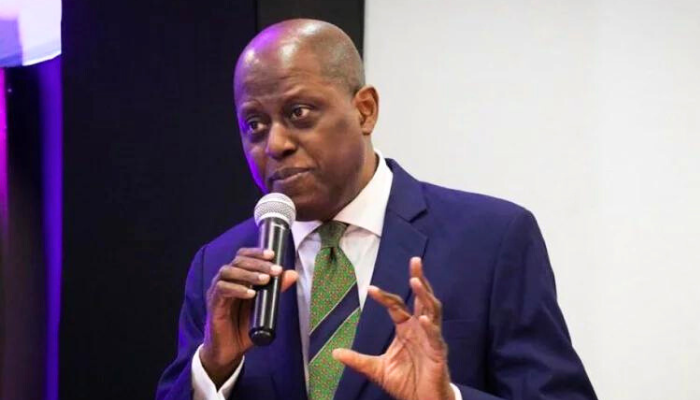This piece seeks to clarify the role of the Monetary Policy Committee (MPC) of the Central Bank of Nigeria in relation to the misconception of the role as reported in a newspaper on Monday, January 22, 2024.
In the article titled, “Scepticism over inflation, insecurity, economic outlook”, a source close to the current CBN leadership team was reported to have argued that the MPC is ‘a mere technical arm of the CBN that had been unduly elevated in recent years… the old MPC is considered to have been dissolved with the apex bank’s board, since it is a technical body that should gather market data, analyse and make a recommendation to the board (which) should make decisions based on the findings and assume responsibility for the decision’.
I have no issues with the dissolution of the MPC as it is probably the prerogative of the president who appointed the members to do so.
However, I find the perception of the MPC as a data-gathering body as borne out of ignorance; it is misleading, disdainful and regrettable. It is an attempt to diminish the significance of the MPC and ridicule the body. I hope that this perception does not reflect the mindset of the present CBN leadership. The MPC is a crucial organ of the bank which it should make effective use of and not diminish.
- Man bags 7 years imprisonment for attempted robbery
- FG to enrol cancer patients in health insurance coverage
The role of the MPC is clearly spelt out in Section 12 of the CBN Act 2007 which states, inter alia, “in order to facilitate the attainment of the objective of price stability and to support the economic policy of the Federal Government, there shall be a committee of the bank known as the Monetary Policy Committee”.
The MPC is specifically charged with the responsibility for monetary and credit policy. Its role in exchange rate management is also of vital importance. Five external members of the committee are directly appointed by the President of the Federal Republic of Nigeria while two members are the Accountant General of the Federation and the Permanent Secretary, Federal Ministry of Finance. The other five members are the Governor (Chairman) and four deputy governors. MPC is thus a high-powered Committee charged with the responsibility of monetary and credit policy making. It is a powerful policy think tank and not a data gathering unit of the bank as erroneously portrayed. It is only required to submit periodic reports of its meetings and activities to the board of directors.
It must be noted that the bank has well-capacitated research and research-oriented Departments that support the work of the MPC, Management, the Board and the bank as a whole with research outputs/proposals. Among these are the Research Department, Statistics Department, Monetary Policy Department, and a host of others. Besides, individual members of the Committee also conduct their research to be able to make informed contributions at meetings and decisions relating to monetary, credit and exchange rate policy. The activities of the MPC are not tailored towards contributing inputs to the Board of Directors.
The role of the CBN’s MPC is akin to those of MPCs in other climes. In other countries, the MPC is considered a very significant body that assists the central bank in monetary and exchange rate matters. In the United States, the MPC, known as the Federal Open Market Committee (FOMC), has the main goal of promoting price stability, high employment and economic growth. At its meetings, FOMC reviews economic and financial conditions, determines the appropriate stance of monetary policy, and assesses the risks to the long-run goals of price stability and sustainable growth.
Thus, it is not a market data-gathering organ. Similarly, in the United Kingdom, the Bank of England’s Monetary Policy Committee is primarily responsible for formulating the UK’s monetary policy and maintaining price stability, and secondarily, supporting the government’s economic policies, and helping to meet its targets for growth and employment. Thus, in other climes, the MPC is highly respected and not treated with contempt and disdain.
That Nigeria’s MPC has had challenges in achieving the objective of price stability in recent times is not a tenable reason to denounce or attempt to ridicule it. If the context and environment in which the MPC has operated in the past eight years is properly understood, it will be clear to the critics that the MPC is not the problem.
The context has been one of stagflation and the resultant policy dilemma, fiscal dominance and ballooning fiscal deficits, frequent exogenous shocks, two recessions in 2016/2017 and 2020, covid-19 pandemic and its impact, and recently, severe policy shocks, among others. These have tended to undermine the effectiveness of monetary policy.
Mike Idi Obadan is a Professor of Economics and Chairman, Goldmark Education Academy, Benin and until recently, a Member of the Monetary Policy Committee. E-mail: [email protected]

 Join Daily Trust WhatsApp Community For Quick Access To News and Happenings Around You.
Join Daily Trust WhatsApp Community For Quick Access To News and Happenings Around You.

